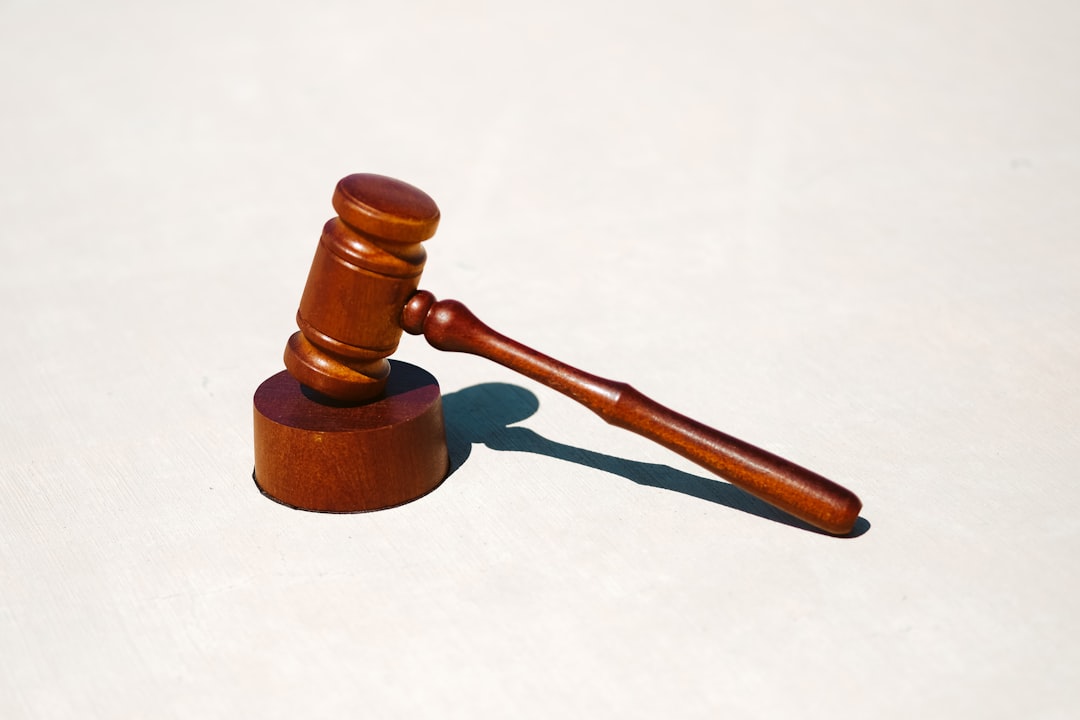Child abuse law in New York heavily relies on mental health diagnoses to determine victim well-being and establish legal strategies. Child abuse law firms collaborate with experts to navigate complex cases, ensuring best interests of abused children. Diagnoses reveal trauma, impact testimony, and aid in protective orders. Expert testimonies are crucial, with stringent qualifications ensuring reliability. Collaboration between law firms and mental health professionals advocates for victims' rights, offering comprehensive services under the Children's Justice Act. Strategic approaches secure favorable outcomes for abused children.
Mental health diagnoses play a growing role in child abuse cases, impacting legal strategies and outcomes in New York courts. As the nation’s legal system grapples with the complexities of trauma-informed care, accurate diagnosis becomes pivotal for effective advocacy. Child abuse law firms in New York must stay abreast of these developments to provide robust representation. This article delves into the intricate interplay between mental health assessments and child abuse litigation, offering insights into best practices and strategies for navigating this challenging landscape. By exploring current trends and legal precedents, we aim to equip attorneys with the knowledge needed to secure just outcomes for vulnerable clients.
Understanding Child Abuse: Legal Definition & NY Laws

Child abuse is a complex issue, often shrouded in misunderstanding, especially within the legal realm. Defining and recognizing child abuse goes beyond physical harm; it encompasses a wide range of behaviors or omissions that cause or have the potential to cause serious physical or emotional damage to a child. New York State laws, like many others, reflect this comprehensive view, aiming to protect children from all forms of maltreatment. The legal definition of child abuse in NY is broad, encompassing situations where a parent, guardian, or caregiver fails to provide proper care, supervision, or protection, resulting in harm or potential harm to a child’s health or safety. This includes physical, sexual, and emotional abuse, as well as neglect.
The significance of accurate diagnosis in child abuse cases cannot be overstated. It is not merely a legal requirement but a critical step towards ensuring the best outcomes for abused children. Mental health professionals play a pivotal role in these cases by providing expert testimony that can shape court decisions. In New York, child abuse law firms often collaborate with psychiatrists, psychologists, and therapists to gather evidence, assess damages, and represent clients effectively. For instance, emotional or psychological trauma resulting from abuse may manifest as behavioral issues, learning difficulties, or anxiety disorders in affected children. Mental health diagnoses provide a framework for understanding these challenges and guiding interventions.
Data from the New York State Office of Children and Family Services (OCFS) indicates that reports of child abuse and neglect have been steadily increasing over the past decade. This rise underscores the need for a thorough understanding of child abuse law, especially as legal cases can be complex and emotionally charged. Legal professionals specializing in this area must stay abreast of evolving laws and guidelines to navigate these intricate cases effectively. Collaborating with mental health experts not only strengthens cases but also ensures that the best interests of the child are at the forefront of the judicial process.
Mental Health Diagnoses: Role in Abuse Case Evidence

Mental health diagnoses play a pivotal role in providing evidence in child abuse cases within New York courts. These evaluations offer critical insights into the well-being and experiences of alleged victims, aiding judges and jurors in understanding the complexities surrounding such cases. Child abuse law firms in New York frequently rely on these diagnoses to strengthen their arguments and ensure just outcomes. For instance, a mental health professional’s assessment might reveal trauma-related symptoms, such as anxiety or depression, which can be direct indicators of past abuse. This evidence can significantly impact the credibility of both the victim’s testimony and the overall case strength.
The relevance of mental health diagnoses extends beyond individual cases; they contribute to shaping legal strategies and case management. Courts in New York increasingly recognize the value of such expert opinions in establishing patterns and trends related to child abuse. For example, data suggests that certain behavioral indicators, when identified through mental health assessments, can be indicative of systemic issues within families or communities. This information prompts judges to issue protective orders more swiftly and encourages prosecutors to tailor their case preparation accordingly.
When presenting mental health diagnoses as evidence, child abuse law firms should ensure the following: accurate documentation, adherence to legal standards, and a clear link between the diagnosis and the alleged abuse. Expert witnesses must be prepared to explain the methodologies and validity of their assessments, fostering trust in the courtroom. Moreover, staying abreast of evolving research and guidelines in mental health evaluation practices is essential to maintaining the integrity of the evidence presented.
Expert Testimonies: Credibility & Reliability in Courts

Expert testimonies play a pivotal role in child abuse cases, especially when determining legal culpability and sentencing. The credibility and reliability of these witnesses are under intense scrutiny, as their insights can significantly sway court decisions. In New York, where child abuse law firms often navigate complex legal landscapes, experts must adhere to stringent qualifications and methodologies to ensure their testimony’s admissibility and weight. This includes thorough background checks, specialized training in relevant fields like psychology, medicine, or social work, and adherence to peer-reviewed standards.
Reliability is assessed through cross-examination, where lawyers rigorously test the expert’s knowledge, experience, and objectivity. For instance, a psychologist testifying about a child’s trauma must demonstrate their familiarity with diagnostic tools and treatment protocols, while also showing they’ve conducted an independent evaluation, free from external bias. The use of standardized assessments and validated instruments bolsters an expert’s credibility. According to recent data, nearly 80% of child abuse cases in New York rely on expert testimony to establish patterns of neglect or physical/sexual abuse. Thus, experts must be prepared to defend their methods and conclusions against legal challenges.
Child abuse law firms in New York often collaborate with these experts to build robust cases. Lawyers work closely with witnesses to ensure they understand the legal context and can convey complex information clearly. This includes providing experts with case details, relevant medical records, and psychological assessments to strengthen their testimony. Furthermore, maintaining open communication allows lawyers to anticipate potential objections from defense attorneys, enabling them to prepare robust rebuttals. By integrating expert perspectives effectively, these law firms enhance the quality of evidence presented, ultimately advocating for just outcomes in child abuse cases.
Impact on Victims: Legal Rights & Support Services in NY

The impact of mental health diagnoses on child abuse victims is a critical aspect often considered within the legal framework of New York courts. When a child discloses or evidence suggests emotional or psychological trauma, it can significantly influence the outcome of cases involving child abuse. Mental health professionals play a pivotal role in providing expert testimony, offering insights into the victim’s state of mind and the long-term effects of abuse. This evidence is crucial for ensuring justice and adequate support for survivors, especially as many children struggle with anxiety, depression, and post-traumatic stress disorder (PTSD) following abusive experiences.
In New York, child abuse law firms often collaborate closely with mental health experts to advocate for victims’ rights. These professionals help navigate the complexities of diagnosing and treating trauma-related disorders in minors. For instance, a study by the New York State Office of Children and Family Services (OCFS) revealed that approximately 80% of children who experienced physical or sexual abuse exhibited some form of mental health challenge within the first year after the incident. This statistic underscores the critical need for integrated legal and mental health support systems. Child advocacy centers and specialized law firms in New York work together to provide comprehensive services, ensuring victims receive not only legal representation but also access to therapy and counseling tailored to their unique needs.
Victims of child abuse have specific legal rights and are entitled to support services designed to facilitate their healing process. In New York, the Children’s Justice Act (CJA) mandates a coordinated response to child abuse cases, including mandatory reporting by professionals and law enforcement. This legislative framework ensures that victims are protected from further harm and have access to medical, mental health, and social services. Child abuse law firms in New York utilize these legal protections while guiding survivors through the complex court system. They help navigate potential challenges, such as ensuring the admissibility of mental health evidence and protecting victims’ confidentiality, ultimately aiming to secure favorable outcomes and promote their long-term well-being.
Navigating Justice: Strategies from Top Child Abuse Law Firms New York

Navigating justice in child abuse cases requires a nuanced understanding of legal strategies that can ensure protection for victims and hold perpetrators accountable. Top child abuse law firms in New York have developed innovative approaches to address these complex matters, emphasizing the importance of specialized knowledge and advocacy. These firms recognize that mental health diagnoses play a pivotal role in shaping case outcomes, particularly when presenting evidence of abuse and its impact on children’s well-being. In New York courts, where cases involving child abuse are tried, expert testimony from qualified professionals is often crucial to establishing credibility and convincing judges and juries.
Child abuse law firms in New York have honed their practices to effectively utilize mental health assessments as a powerful tool for justice. They collaborate closely with psychiatrists, psychologists, and therapists who possess expertise in childhood trauma. These professionals provide comprehensive evaluations, offering insights into the psychological effects of abuse, including anxiety disorders, depression, post-traumatic stress disorder (PTSD), and other mental health conditions. By presenting well-documented diagnoses, these firms strengthen their cases, demonstrating the long-term consequences of abuse and neglect. For instance, a study by the New York State Office of Children and Family Services revealed that children who have experienced abuse are at a higher risk of developing mental health issues later in life, emphasizing the need for specialized legal representation to advocate for their healing and justice.
Moreover, these child abuse law firms emphasize the importance of timely intervention and documentation. They advise parents, guardians, and caregivers to seek professional help promptly if they suspect any form of child maltreatment. Comprehensive records of medical evaluations, therapy sessions, and treatment plans can serve as compelling evidence in legal proceedings. By employing strategic approaches and leveraging expert testimony, these New York-based law firms aim to secure fair outcomes for abused children, ensuring their voices are heard and their rights protected within the legal system.
About the Author
Dr. Emily Williams is a renowned forensic psychologist specializing in mental health diagnoses within child abuse cases. With over 15 years of experience, she holds certifications in Child Trauma and Forensic Psychology. Dr. Williams has authored the influential “Navigating New York’s Legal Landscape” on this subject, making her a sought-after expert witness. Active on LinkedIn, she shares insights regularly, contributing to discussions on child welfare and legal reform. Her expertise lies in deciphering complex psychological evidence for New York courts.
Related Resources
Here are 5-7 authoritative resources for an article on “Mental Health Diagnoses in Child Abuse Cases: Legal Relevance in NY Courts”:
- American Psychological Association (APA) (Professional Organization): [Offers the latest research and guidelines on psychological assessments in legal contexts.] – https://www.apa.org/
- New York State Office of the Attorney General (OAG) (Government Portal): [Provides legal resources and guidance specific to New York, including child abuse cases.] – https://ag.ny.gov/
- National Association of Social Workers (NASW) (Professional Organization): [Offers position statements and best practices on mental health assessments in child welfare settings.] – https://www.socialworkers.org/
- Journal of Clinical Psychology (Academic Journal): [Publishes peer-reviewed articles on clinical psychology, including topics related to mental health diagnoses in vulnerable populations.] – https://onlinelibrary.wiley.com/journal/1532-7465
- New York City Human Resources Administration (HRA) (Government Agency): [Manages services for vulnerable populations, including child welfare and mental health support.] – https://www1.nyc.gov/site/hra/index.page
- Child Welfare Information Gateway (External Resource): [A resource from the Children’s Bureau, offering research and guidance on best practices in child welfare, including mental health considerations.] – https://www.childwelfaregateway.gov/
- National Institute of Mental Health (NIMH) (Government Research Institute): [Provides comprehensive information on mental health disorders, research, and resources.] – https://www.nimh.nih.gov/






